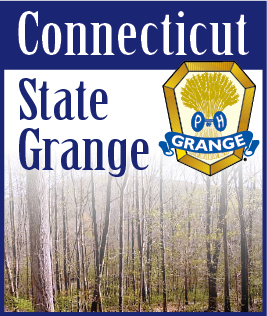| JANUARY 2007 -- The Master of the National Grange,at the 140th National Convention, has called for progressive new public policies that re-invigorate and protect rural communities. William A. Steel told assembled delegates from more than 30 states that issues such as rural health care, education, transportation, and telecommunications access will have more long-term impact on rural communities than traditional agriculture, trade, and environmental policies that command today's headlines.
"Convincing our policymakers to implement pro-family farm and pro-rural entrepreneur policies will be a challenge," he points out. "The next Farm Bill should recognize and promote adoption of innovative practices such as part-time farming, new uses, direct-to-consumer, biotechnology, bio-energy, and organic farming." Failure to do so, he says, will result in ill-conceived and poorly crafted policy decisions that will threaten the prosperity and very existence of the nation's farming and rural communities.
National Master Steel said that national policies must allow the nation's fast-growing populace to select rural lifestyles, while protecting the unique character of rural communities. He called for an immigration policy that recognizes that more than 50 percent of all non-family farm labor in the U.S. is provided by illegal immigrants; for addressing the growing threat of methamphetamine on rural populations; to provide flexibility for farmers and rural residents who choose "service" applications for their agricultural assets; and for policies that gradually shift resources to provide credit, risk management, income support, and environmental stewardship for family farmers and rural residents, regardless of the crop or livestock they produce.
Steel called for steps to divest authority for agricultural and rural development policies away from the federal government, and placing them down at the regional, state, and local government level, where local citizens feel a greater sense of efficacy and commitment.
"At no point in time since the Founders of the Grange met in Washington, D.C. to create an organization whose mission was to educate farmers, as well as all Americans about the changing structure of American agriculture, has the impending structural shift in the nature of our rural communities been more apparent," he said. "I am confident that the National Grange is the right organization to forthrightly address the major challenges facing today's farmers, ranchers, and rural communities that nurture them."
|
